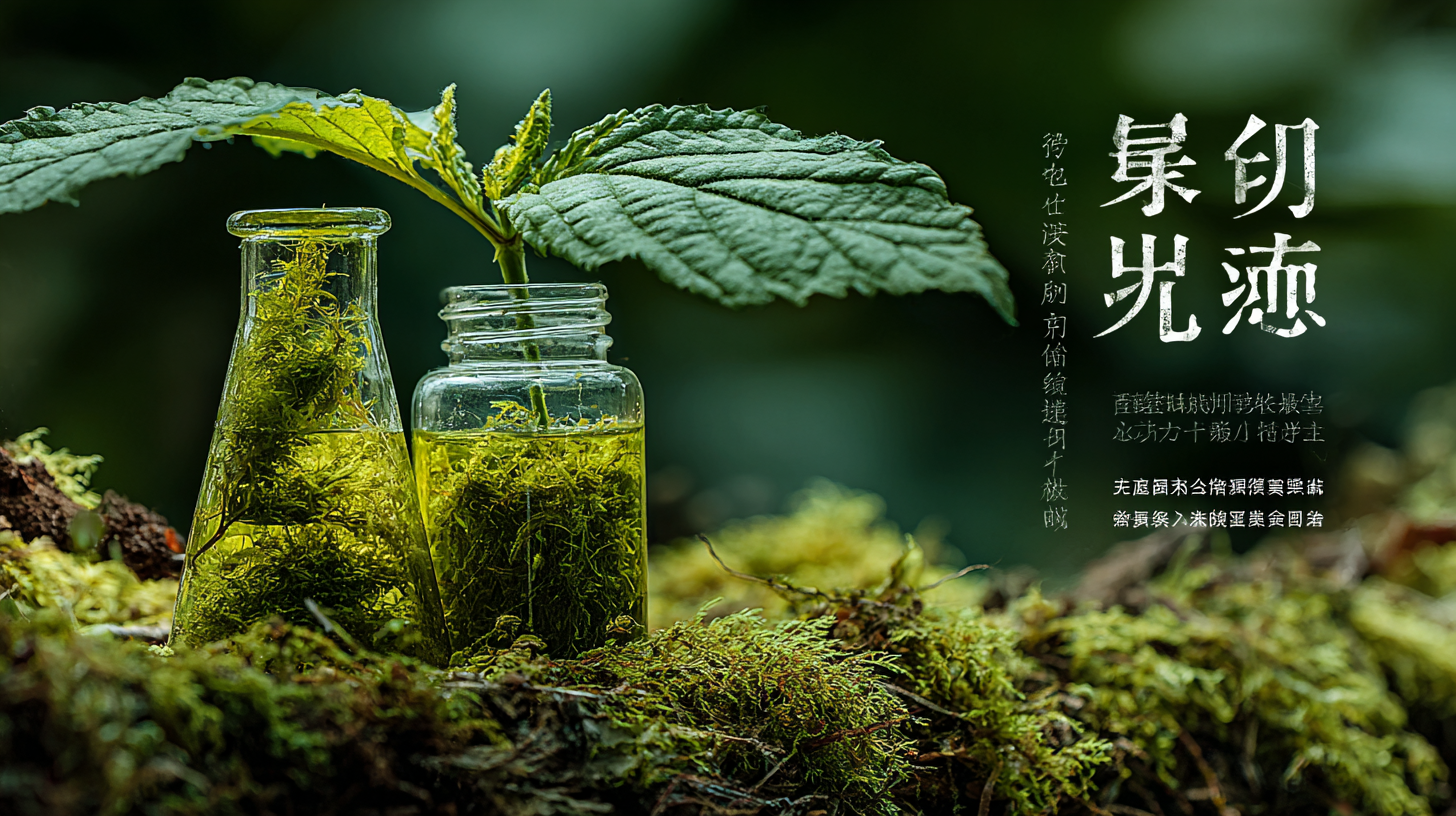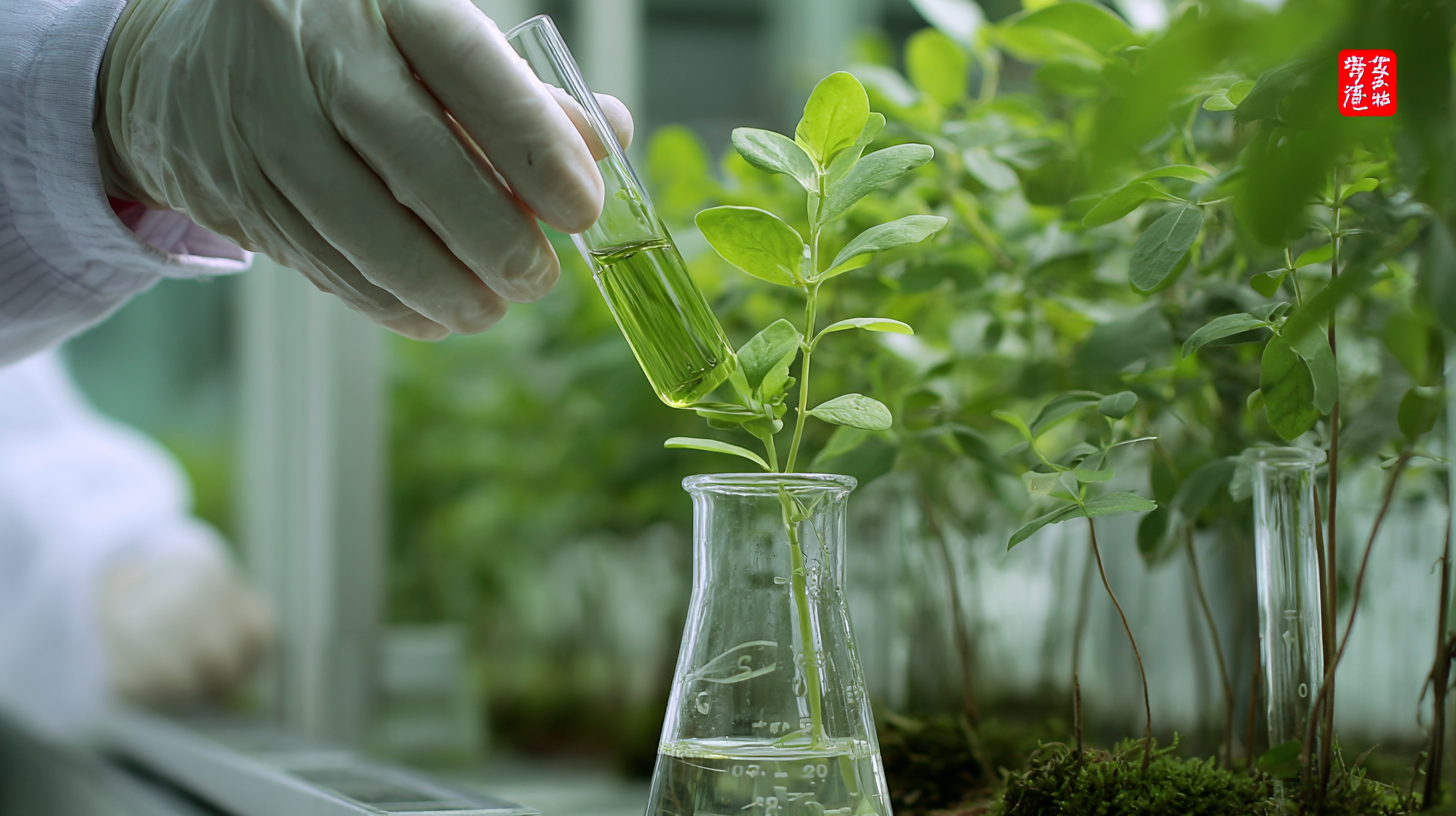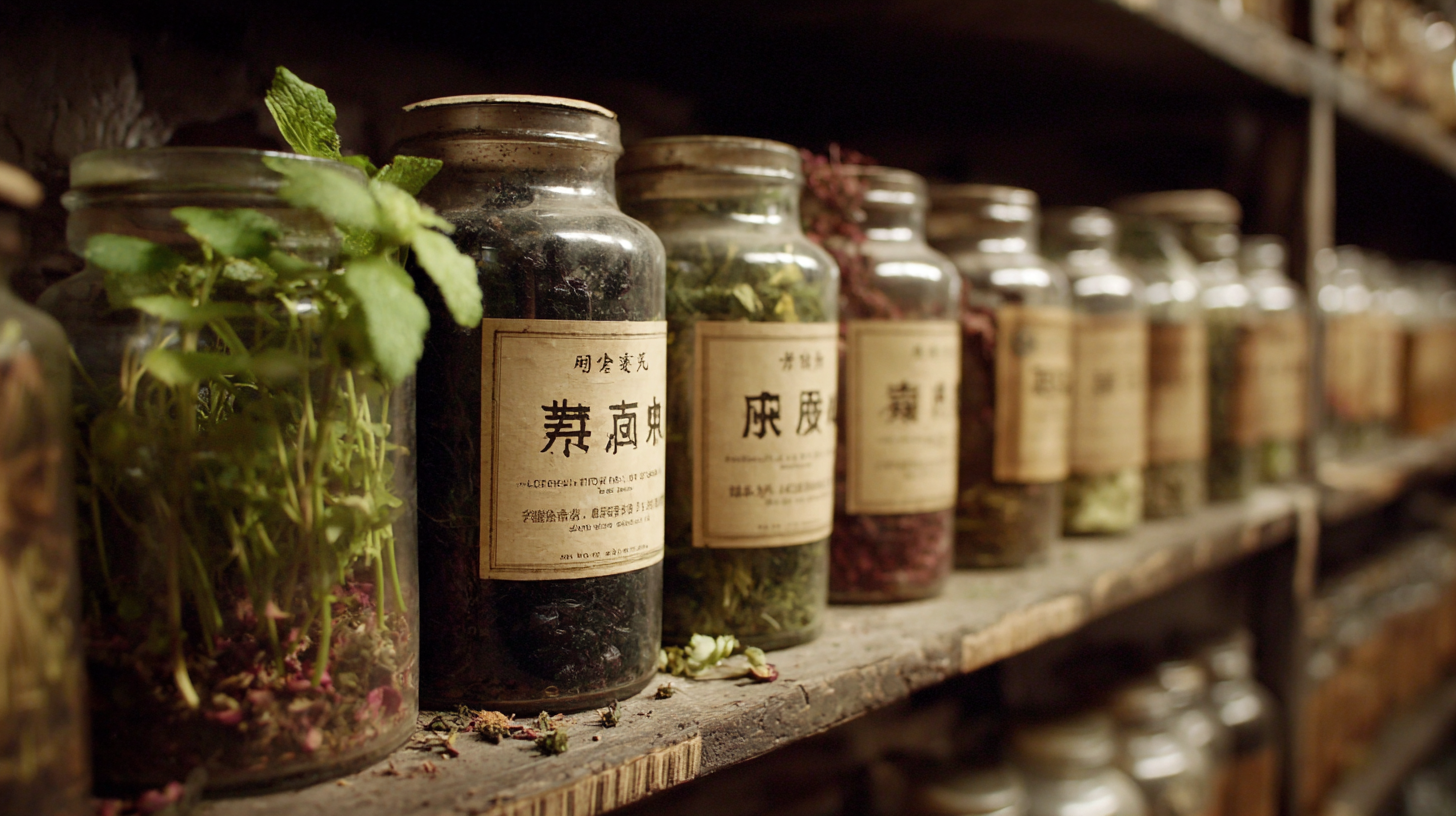As the global demand for natural remedies continues to rise, medicinal plant extracts have emerged as a vital component in the healthcare and wellness industries. According to a report by the World Health Organization, up to 80% of the population in some Asian and African countries rely on traditional medicines that predominantly utilize these extracts. China's unparalleled biodiversity and expertise in herbal cultivation position it as a leader in producing high-quality medicinal plant extracts, enhancing both local and international markets.

The Global Medicinal Plant Extract Market is projected to reach USD 428.9 billion by 2025, emphasizing the lucrative potential for global sourcing from China. This blog aims to unveil the most sought-after medicinal plant extracts from China, highlighting their exceptional qualities and the reasons why they should be integral to global health solutions.
China is emerging as a key player in the global sourcing of medicinal plant extracts, driven by innovations that highlight the unique qualities of its natural resources. As the demand for herbal remedies and natural products increases worldwide, the capabilities of Chinese companies in this sector have significantly expanded. Modern technology and efficient procurement strategies are being employed to ensure the highest quality of extracts is delivered to international markets.
One of the noteworthy advancements is the push for streamlined procurement processes within the traditional Chinese medicine industry. By centralizing the purchasing of herbal ingredients, companies can reduce costs and enhance consistency in their offerings. This strategy not only benefits producers but also opens up opportunities for modern enterprises to engage with rural communities, thus promoting local economies and sustainable practices.
Tip: When looking for medicinal plant extracts, prioritize suppliers that use advanced extraction techniques to ensure potency and purity of their products. Consider the sustainability of sourcing practices as well, as responsible sourcing can significantly impact environmental conservation.
Tip: Stay updated on regulatory changes and market trends in the herbal product sector. Understanding these dynamics can help businesses adapt quickly and position themselves effectively in an increasingly competitive global landscape.
As we approach 2025, the medicinal plant industry is on the brink of a technological revolution that promises to enhance global sourcing and drive excellence. Emerging technologies such as artificial intelligence, blockchain, and biotechnology are reshaping how we discover, cultivate, and process medicinal plant extracts. According to a recent report by Global Industry Analysts, the global herbal medicine market is expected to surpass $300 billion by 2025, underscoring the demand for high-quality extracts that meet international standards.
Moreover, the integration of precision agriculture techniques is set to streamline cultivation practices, ensuring the optimal growing conditions for medicinal plants. By leveraging data analytics and IoT (Internet of Things) devices, farmers can monitor soil health, moisture levels, and plant growth in real-time, leading to increased yields and improved extract quality. A study by MarketsandMarkets predicts that the use of smart farming technologies in the herbal sector will contribute to a projected 30% increase in production efficiency by 2025.
Additionally, blockchain technology is enhancing traceability in the supply chain, ensuring that consumers are aware of the origins and quality of the extracts they purchase. This transparency not only builds trust but encourages sustainable practices among producers. As consumer awareness around herbal supplements continues to rise, integrating these emerging technologies will be crucial for suppliers aiming to maintain a competitive edge while delivering premium medicinal plant extracts to the global market.
In today's competitive landscape, ensuring excellence in plant extract production is imperative for both manufacturers and consumers. Quality control plays a crucial role in this process, particularly in the realm of medicinal plant extracts. Precise monitoring of every stage—from sourcing raw materials to the final extraction processes—guarantees that the end products are not only effective but also safe for consumption. Manufacturers in China, known for their rich biodiversity, emphasize stringent quality control measures to maintain the integrity of their extracts while meeting global standards.
Implementing advanced technologies in quality assessment enables producers to identify the potency and purity of botanical extracts. Techniques such as chromatography and spectrometry are essential for detecting contaminants and ensuring that the extracts retain their therapeutic properties. Moreover, adherence to international regulations and certifications enhances the credibility of Chinese medicinal plant extracts in the global market. By committing to rigorous quality control protocols, manufacturers can deliver products that reflect excellence, thereby supporting the growing demand for natural health solutions worldwide.

In the realm of global sourcing, the ethical and environmental implications of medicinal plant extracts are becoming increasingly critical. According to a report from the World Health Organization, approximately 80% of the world's population relies on traditional medicine, which heavily utilizes plant extracts. This dependence highlights the urgent need for sustainable sourcing practices that prioritize ethical harvesting methods and environmental conservation. Sustainable practices not only protect biodiversity but also ensure the long-term availability of these vital resources.
Furthermore, the United Nations' Food and Agriculture Organization reports that unsustainable extraction methods could jeopardize up to 70% of the medicinal plant species by 2025. To mitigate these impacts, companies are increasingly adopting certifications such as Fair Trade and Rainforest Alliance, which promote responsible sourcing and fair wages for local harvesters. By prioritizing ethics in sourcing, the industry can contribute to the preservation of ecosystems while supporting the livelihoods of local communities. As the demand for high-quality medicinal extracts continues to rise, a focus on sustainable and ethical practices will be paramount for the health of both consumers and the planet.
| Medicinal Plant | Active Compounds | Traditional Uses | Sustainable Sourcing Practices | Environmental Impact |
|---|---|---|---|---|
| Ginseng | Ginsenosides | Boosting energy, reducing stress | Cultivated in controlled environments | Low impact, promotes biodiversity |
| Goji Berry | Polysaccharides, vitamins | Immune support, anti-aging | Organic farming methods | Minimal pollution, soil enhancement |
| Schisandra | Schisandrin | Adaptogen, liver health | Wild harvested, ethical sourcing | Supports forest conservation |
| Turmeric | Curcumin | Anti-inflammatory, antioxidant | Crop rotation, soil preservation | Improves soil health |
| Licorice Root | Glycyrrhizin | Digestive aid, respiratory health | Integrated pest management | Reduced chemical runoff |
Navigating the complexities of global markets is essential for effectively distributing China’s premium medicinal plant extracts. According to a recent report by Grand View Research, the global herbal medicine market is projected to reach USD 396.62 billion by 2024, indicating a significant opportunity for Chinese exporters. To capture this market, it is crucial to develop robust distribution strategies that resonate with diverse consumer needs across different regions.

One effective approach is leveraging e-commerce platforms, which have seen substantial growth in the health and wellness sector. A report by Statista reveals that the online herbal product market is expected to grow at a compound annual growth rate (CAGR) of 15.8% from 2021 to 2028. By partnering with established online retailers and utilizing targeted digital marketing strategies, businesses can enhance their visibility and accessibility in this burgeoning market. Furthermore, understanding regulatory requirements in various countries will streamline entry and compliance, ensuring that these high-quality extracts are both safe and appealing to consumers worldwide.
2025 Bio-Botanica, a division of Bio Answer Holdings Inc. All Rights Reserved.